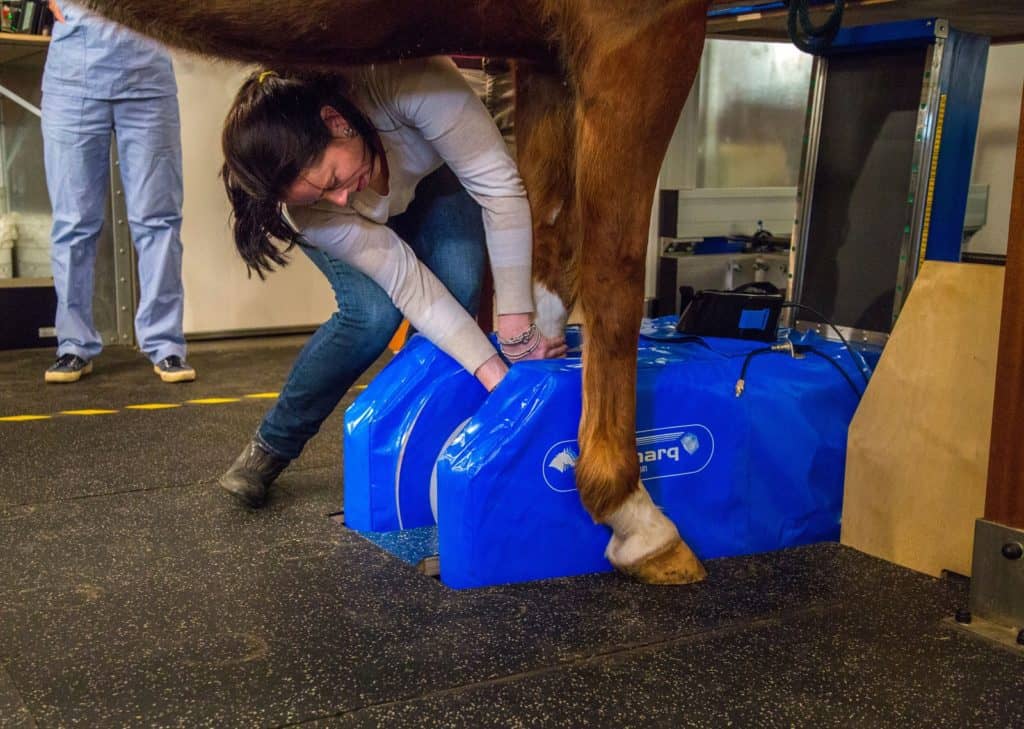
Study: Desert Leaf Extract Eliminates Proud Flesh in Horses
Indian researchers found resistant proud flesh became undetectable within weeks of treatment with the newly developed desert cotton leaf extract.

Indian researchers found resistant proud flesh became undetectable within weeks of treatment with the newly developed desert cotton leaf extract.

What prevention steps can I take for my horse’s rear leg swelling after exercise?

Horses waking up from general anesthesia can injure themselves trying to stand. But those receiving epidural opioids beforehand generally make fewer efforts to stand and do so more calmly.

To help our readers better understand soft tissue injuries, we combed our content library to find our top resources on the topic.

Get an update on the use of stem cells in horses and research leading us into the future.

Researchers treated neck wounds with a commonly accepted LED light therapy and saw no positive effects.

The body delivers blood to help tendons heal. Power Doppler can identify when blood is present in horses’ injuries that veterinarians might otherwise believe to have recovered.

Sometimes rest is the best recipe for recovery for an injured horse. Learn about the science of healing, aggressive vs. conservative treatment, and exercise rehabilitation.

One veterinarian weighs the pros and cons of available imaging modalities when it comes to diagnosing common fetlock injuries.

Learn how to manage minor leg wounds in our step-by-step visual guide.

Using 0.2% PHMB-impregnated gauze reduced the growth of underlying bacteria commonly implicated in orthopedic wounds and infections of horses.

Take a look inside Rood & Riddle Equine Hospital’s vet-recommended equine first-aid kit for minor wounds.

Being prepared for an equine emergency can help make the situation less stressful and result in a more positive outcome.

A deep branch lateral plantar neurectomy and fasciotomy procedure can get affected horses back to work.

Seven measurement tools and methods veterinarians can implement into equine rehabilitation programs to track progress.

After identifying the affected structures, veterinarians can use ultrasound, radiographs, and synoviocentesis to assess synovial involvement.
Stay on top of the most recent Horse Health news with
"*" indicates required fields